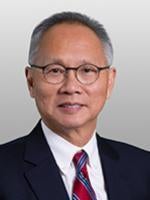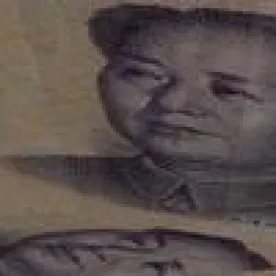As most expected, China’s recently-concluded 19th Party Congress appears to have consolidated Xi Jinping’s leadership role within the Chinese Communist Party (CCP) and affirmed his policy agenda of the past five years—since he took over the Party in 2012 and as China’s President in 2013. It was a given that Xi would continue into his second five-year term as CCP General Secretary. Beyond this, however, the Congress voted unanimously to amend the Party constitution to include a reference to “Xi Jinping Thought on Socialism with Chinese Characteristics in a New Era,” on which Xi expounded in his three-and-a-half-hour opening report to the Congress. This essentially elevated him to the ranks of Mao Zedong and Deng Xiaoping, surpassing his immediate predecessors. The fact that the line-up of the seven-member CCP Politburo Standing Committee did not include a designated heir-apparent, moreover, can be seen as further underscoring his position, since it concentrates power in Xi and opens up the possibility that he may continue to lead the CCP for a third term after the 20th Party Congress in 2022. If so, this would represent a major departure from recent norms that had limited the CCP General Secretary to two five-year terms and to serving only under the age of 70.
Enhancing One-Party Rule
In his much-noted opening speech to the Party Congress on October 18, Xi set broad policy goals that primarily build on his policy agenda of the past five years. Above all, Xi emphasized the need to strengthen even further communist one-party rule in China, including control of the Internet and social media, essentially sidelining the prospect of political liberalization for the foreseeable future. This suggests that the recently-passed laws governing cybersecurity, national security, and the supervision of foreign NGOs are likely to be applied vigorously, and perhaps even expanded. In his report, Xi called for the Party to strive for the “great success of socialism with Chinese characteristics,” essentially touting and contrasting China’s model from that of a Western “liberal democracy,” and offering an alternative that some developing countries may find more appealing. At the same time, Xi recognized in his report the importance of increasing discipline within the Party at all levels, especially by expanding the anti-corruption campaign and addressing the critical and widespread issues of poverty, inequality, and the environment in order to maintain popular support.
Strengthening the State’s Role in the Economy
On the economic front, Xi continued to emphasize the Party and the state’s leading role by calling for further measures to support, consolidate, and make more efficient China’s debt-laden state-owned enterprises, as opposed to leaving them to market forces. He focused on government industrial policies and financing for research and development to promote technological advances and innovation, much as was laid out in the government’s “Made in China 2025” report. Xi also called for increased government supervision of the financial sector to avoid the financial crises that China had experienced in the past, e.g., during the 2015 stock market crash that saw the loss of up to $3 trillion in market value. Xi did talk about giving the market more of a role in resource distribution and in setting “market-oriented” (as opposed to market-determined) interest rates and foreign exchange policies. The key point here is that under Xi’s model, China’s economic policies will continue to be led by the state while guided, but not ruled, by market forces.
Expanding Foreign Investments via Free Trade Zones
With respect to foreign trade and investment policies, Xi underscored China’s commitment to further opening in both directions, arguing that “opening brings progress, while closing will necessarily lead to backwardness.” He indicated that China has welcomed foreign investment by offering to implement “pre-establishment national treatment” as well as adopting a “negative list” approach that is intended to expand market access for foreign investors. He also spoke of protecting the legal rights of foreign investors. In this context, he proposed to continue China’s longstanding practice of creating more experimental free trade zones and free trade ports to attract selected foreign investment into confined geographic areas, such as the country’s recently established free trade zones.
China’s “Coming Out” on the Global Stage
Xi boldly announced in his report that China aims to become recognized as a global power in all respects by 2050, in essence achieving the “China dream” of returning to its historic greatness. He declared that “it is time for us to take center stage in the world and to make a greater contribution to humankind.” Apart from creating a modern economy and society domestically, Xi touted China’s Belt and Road Initiative as key to expanding the country’s economic and political influence, as well as its soft power, in the region and around the world. Xi also set forth the goal of modernizing the Chinese military in stages, and creating a world-class military force by 2050, to defend China’s national interests. With respect to Taiwan, Xi spoke forcefully against any attempt to “split the motherland,” and asserted China’s “firm will, sufficient faith, and adequate capacity to defeat any movement toward ‘Taiwanese independence’ in any form.” At the same time, however, Xi repeated that China must continue to insist on the goals of achieving “peaceful reunification” within the “one country, two systems” framework, as currently applied to Hong Kong.
Prospects for the Next Five Years
What the above suggests is that there will not be any major changes in the general direction of China’s policy agenda ahead. Indeed, Xi has sought and obtained affirmation of his policies of the past five years by casting them into a new ideological model of “socialism with Chinese characteristics in a new era.” This model notes the importance of a strong legal system and market forces, but essentially underscores the primacy and leading role of the Party and the state. In this model, the Party/state rules by law and uses the market, but it is not subject to either. The prospect for significant political liberalization and market reforms thus appears dim.
On the foreign policy front, China is likely to be more assertive politically and economically on the world stage, but it will likely be relatively cautious in terms of wielding its growing military power. Xi’s top priority at this stage will be to develop a “moderately prosperous” economy and to maintain a stable society—both immense challenges for a developing, middle-income country of 1.4 billion people, with half of its quickly ageing population still living in rural areas. To achieve the ambitious goals set forth in his report, and to assure the survival of the Party, China first needs to be able to sustain its economic growth and modernization efforts. This will require a stable regional and international environment that does not disrupt its critical trade and investment ties abroad.
The fundamental question, then, is whether Xi’s model will continue to work as its people and companies become more engaged and exposed to the international norms and values of the modern world. Will the Chinese people continue to accept one-party rule indefinitely, especially if and when the country’s economic growth begins to slow in the years ahead? Will China be able to revive its ailing state-owned enterprise sector simply through subsidies and consolidation, without significant market reforms? Will China be able to continue to pursue its “industrial policies” and create “national champions,” hence benefitting from but not complying with existing global trade and investment rules? Will China be able to foster indigenous innovation if other countries begin to take measures to limit its ability to access and acquire advanced technologies? Finally, how will the United States and the advanced “Western” nations respond to the political, economic, and ideological challenges posed by a rising China in this new era?




 />i
/>i

